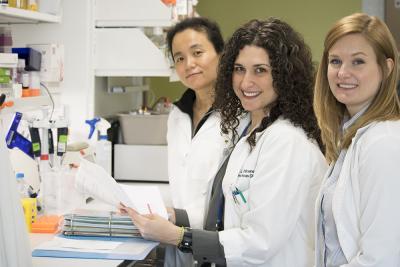
Women face unique health problems related to many NIAID mission areas—specifically, HIV/AIDS, sexually transmitted infections, and autoimmune disorders. Many infectious and autoimmune diseases affect female populations disproportionately. For example, genital herpes from herpes simplex virus 2 is nearly twice as common among women as among men. Likewise, women account for more cases of chlamydia, lupus, and scleroderma than do men.
Even diseases that strike men and women in nearly equal numbers may have unique consequences or complications for women. For instance, women with HIV are at higher risk of severe cases of gynecological problems, such as chlamydia or bacterial vaginosis, than are non-infected women. Women also risk passing some of these diseases to children during pregnancy or breastfeeding.
The National Institutes of Health (NIH) created the women’s health research category in 1994 for annual budgeting purposes and in 2019 it was updated to include the following categories:
- Studies with only female participants
- Diseases or health conditions unique to women
- Disease or conditions that predominantly affect women or girls
- Research with an overall goal of examining women’s health outcomes, trajectories, risk factors, diagnosis or treatment strategies, or health differences between women and men
- Career development, training, and meeting grants related to fostering the women’s health research workforce
Highlights

Discover Women's Health Research
The NIH Office of Research on Women’s Health (ORWH), in collaboration with the National Library of Medicine, has launched the first phase of a novel discovery resource for women’s health research (WHR), called DiscoverWHR. This resource enables researchers, health care providers, patients, caregivers, and the public to easily find the latest discoveries and current research funded by NIH on topics that affect women’s health.
News Releases
NIAID Now Blog
- Shaping the Next Era of HIV Therapeutics and Care
October 29, 2024
Funded Research News
Related Public Health and Government Information
To learn about risk factors for diseases that specifically affect women and current prevention and treatment strategies visit the MedlinePlus Women’s Health site.


